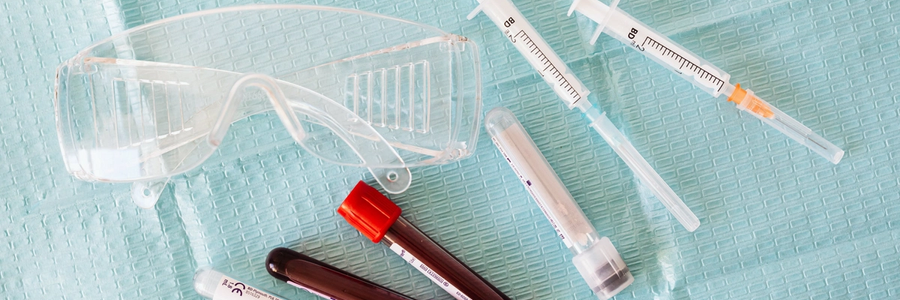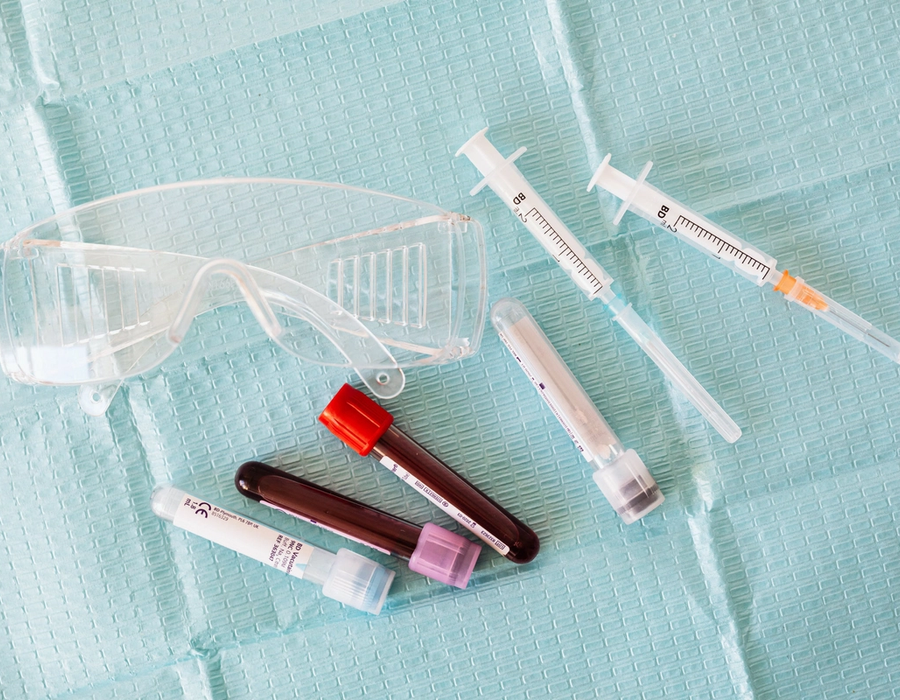
Health care
Blood test
Equipment used during blood tests
Understanding the equipment used during a blood test helps to rationalize the act and tame anxiety.

Although the blood test is a medical examination that takes little time, it is not simple and requires a good amount of equipment. In this article, we briefly detail the equipment used during blood tests.
TOURNIQUET
The tourniquet is an elastic band that is placed on a patient’s arm approximately 10 cm above the site where the venipuncture will take place. It is used to dilate the veins in a patient's arm.
ALCOHOL SWAB
Alcohol swabs saturated with 70% isopropyl alcohol are regularly used to disinfect the site where the venipuncture will take place. The healthcare professional rubs the alcohol swab in a circular motion from the inside to the outside.
BARREL
The barrel is inserted with a needle into the vein and will fill all the necessary blood tubes without having to change the needle.
NEEDLE
Several needle gauges and length are available. The nurse chooses the type of the needles she needs according to the type of analysis required, the patient, the size of the vein, etc.
TUBES
The color of the tube indicates the type of blood sample. For example:
Serum red tube
Citrate royal blue tube
Lavender EDTA tube
SST yellow tube with gel
Sodium fluoride gray tube
Forest green tube with heparin
The blood drawing itself takes a few seconds. An elaborate blood test that includes 4 to 5 collection tubes will require barely one tablespoon of blood (15 mL); a very small fraction of the 4 to 5 liters of blood that the human body contains.
COTTON WOOL COMPRESSES OR NON-STERILE PADS
During a blood test, the compresses are used to absorb the blood and therefore do not need to be sterile. The nurse uses the compress to stop the bleeding after the needle is removed.
NON-STERILE GLOVES
Gloves can be made of thermoplastic polymers or latex. Wearing gloves protects against blood exposure. If you have a latex allergy, please inform your nurse before the appointment; she will wear latex free gloves.
DIACHYLON (BAND-AID)
The adhesive plaster is applied to the place where the needle has been inserted by the nurse to reduce the risk of infection.
BIOHAZARD CONTAINERS
The nurse dispose soiled, sharp and contaminated waste materials in the biohazard containers for both her and her patient’s safety.
For more information visit:
https://www.bloodtestmontreal.com/en/materials